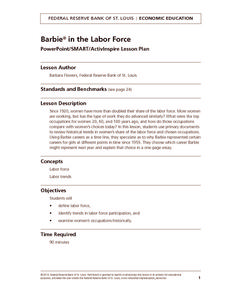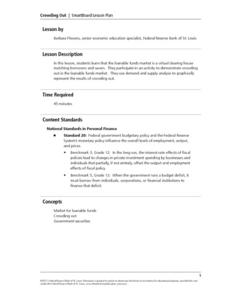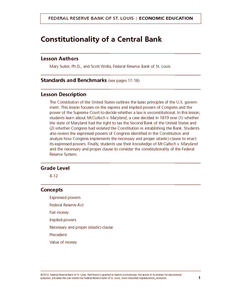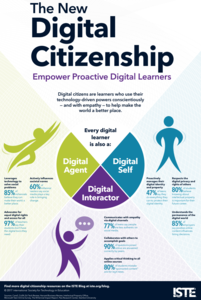Curated OER
Understanding the Influence of the Media
Critically analyze advertising techniques, such as circular reasoning, bandwagon, testimonial, and repetition, with worksheets that effectively discuss and illustrate how the media aims to influence.
ProCon
Social Media
Facebook, Instagram, Twitter—are they good for society? Pupils prepare for a class debate in which they voice their opinions on the issue. They read the main pro and con arguments, explore others' opinions, view videos, and discover the...
PBS
Technology: Conveniences and Consequences
It's a delicate balance—using technology to improve our lives while still protecting the environment, and ourselves, from the hazards of technology use. Class members examine statistics about the increase in media use, complete a survey...
Special Olympics
Special Olympics Volleyball Coaching Guide: Teaching Volleyball Skills
From warm-up routines and stretches to skill progressions and passing drills, this is an absolute must-have resource for coaches teaching volleyball to a group of learners with diverse needs and skills.
National Institute of Open Schooling
Alcohols, Phenols and Ethers
Classes continue their study of organic compounds in a detailed lesson covering alcohols, phenols, and ethers. Naming these compounds, classifying them, and describing their preparation and use are some of the topics covered. Through...
Penguin Books
Using Thirteen Reasons Why in the Classroom
Thirteen Reasons Why by Jay Asher helps bring difficult, but important, topics such as suicide and bullying into the classroom. An educator's guide for the novel provides activities and discussion questions to help teens explore the...
Federal Reserve Bank
Barbie in the Labor Force
How have the women's share of the labor force and chosen occupations evolved in the United States over the last century? Using census reports, graphs detailing the gender makeup of the labor force, and analysis of the careers of...
Federal Reserve Bank
Financial Fables: Shopping Wisely with Olivia Owl
Cover two subjects with one instructional activity! First, dive into English language arts; read an eBook, answer comprehension questions, and complete a cause and effect chart about the financial fable, Shopping Wisely with Olivia...
Federal Reserve Bank
Crowding Out
This is an incredible resource for teaching your young economists about the loanable funds market and the concept of crowding out. It includes a hands-on, physical activity that serves as a metaphor to help explain the economic...
Wind Wise Education
Where is it Windy?
How is the wind up there? The class builds a topography model using materials available in the classroom, then place wind flags in different locations on the landscape. Using a fan as a wind source, pupils collect data about how wind...
WindWise Education
What is Wind Power's Risk to Birds?
How is risk determined? Through the use of a reading passage, individuals or groups learn about bird interactions with man made structures along with wind turbines. Pupils use information from the second reading passage to conduct an...
WindWise Education
How Does Energy Affect Wildlife?
Is wildlife affected the same way by different electricity generation methods? Teams work together to research four electricity generation sources and their impacts on wildlife. The teams create a summary report and share their...
WindWise Education
Can We Reduce Risk to Bats?
It is just batty! A resource outlines a case study scenario of reducing the risk to bats. Teams learn about the bat populations in the area of the wind farm, then research and propose a solution.
Wind Wise Education
What is the Cost of Inefficiency?
What does it cost to keep the lights on? Through a hands-on activity, class members use a watt meter and determine the amount of energy different types of light bulbs use. The class then determines the financial and environmental...
Wind Wise Education
What are Wind Shear and Turbulence?
Let's go fly a kite. By flying a kite, class members observe the difference in air flow. The class notices the characteristics of banners tied to the kite string to determine where wind turbulence stops. Adding an anemometer to...
Wind Wise Education
What Causes Wind?
Through watching several classic air pressure demonstrations, middle schoolers determine that high pressure areas move toward lower pressure areas, heated air causes a drop in pressure, and forces exist when pressures are unequal....
WindWise Education
How Can I Design Better Blades?
Small groups use information they have learned about blade construction to design, build, and test their own concepts. The teams compete in order to determine which design has the best average power output.
Federal Reserve Bank
Constitutionality of a Central Bank
Considering the expressed and implied powers of Congress, was it constitutional for the United States to establish the Second National Bank in the early nineteenth century? What is the constitutionality of the Federal Reserve...
Federal Reserve Bank
Government Spending and Taxes
What types of government programs are designed to improve economic inequity in the United States? Introduce your learners to government programs, such as low-income housing, Social Security, and Medicaid, how they work to improve...
Wind Wise Education
Can Wind Power Your Classroom?
Can you power this? Individuals do an energy audit for the classroom to determine the amount of electricity needed to power it. Using either live data or sample data from wind turbines they decide whether it would power the classroom....
Sunburst Visual Media
Clouds
Support science instruction with a combination of engaging activities and skills-based worksheets that focus on clouds. Learners take part in grand discussions, write an acrostic poem, complete graphic organizers, solve word...
Classroom Law Project
What do cartoonists see in this election?
Cartoons from the 2008 Presidential election provide the text for a lesson plan designed to help learners understand how political cartoonists use persuasive techniques to present a point of view.
ISTE
The New Digital Citizenship
Boost digital citizenship with an engaging infographic that promotes the importance of being a positive digital agent, self, and interactor.
Learning Zone Express
The Basics of Sewing
This resource is a stitch. Kids learn the basics of hand and machine sewing, how to sew on buttons, how to construct and repair clothing, and how to use patterns to create decorative ornaments.
Other popular searches
- Education News
- Media Education Propaganda
- Media Education Esl
- Lesson on Media Education
- On Line Media Education
- Media Education Lesson Plans
- Media Education Tabloid
- Online Media Education
- Media Education Math
- Media Education Blogging
- Media Education Art Projects
- Media Education Blagging























